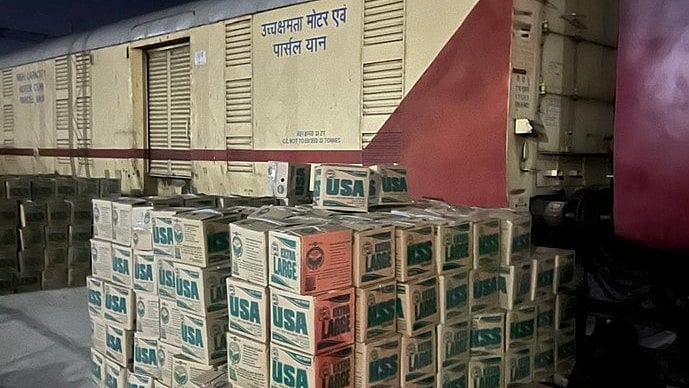In a significant step towards promoting agricultural logistics via rail, the Business Development Unit (BDU) of Western Railway’s Mumbai Central Division has successfully facilitated the transition of Chickoo transportation from roadways to railways. In this direction, special train has been started from Bilimora to Adarsh Nagar in Delhi, for the benefit of Chickoo farmers of Valsad, Navsari and the south Gujarat area.
According to a press release issued by the Chief Public Relations Officer of Western Railway, Vineet Abhishek, extensive discussions were held by senior railway officials with various Chickoo Co-Operative Societies in the Valsad district to highlight the benefits of rail transport. As a result of these efforts, recently VVKS Khedut Mandali, Amalsad loaded around 35,000 boxes of chickoo from Bilimora for transportation & distribution of their produce in Adarsh Nagar, Delhi. This dedicated special train containing Chickoo boxes reached its destination within 24 hours, ie around 07:00am in the morning, ensuring the freshness of the perishable product and making it possible to deliver it well before the opening of the markets. This train significantly reduced the transit time compared to the 35 hours taken by road transport. Further, 14 more rakes have been planned to transport such perishable products which will garner revenue to the tune of approximately Rs. 1.25 crore.
Vineet informed that encouraged by this success, Business Development Unit (BDU) Valsad is now actively engaging with Mango Cooperative Societies to explore similar transportation solutions in the upcoming season for mango produce as well. This initiative follows the successful execution of the Kisan Rail scheme during the COVID-19 period, under which more than 150 rakes of perishable goods were transported, ensuring timely delivery and minimizing losses for farmers.
Indian Railways continues to play a crucial role in supporting the agricultural economy by providing faster, cost-effective, and efficient logistics solutions for farmers and traders. This shift from road to rail not only ensures quicker deliveries but also contributes to sustainability by reducing carbon emissions.
